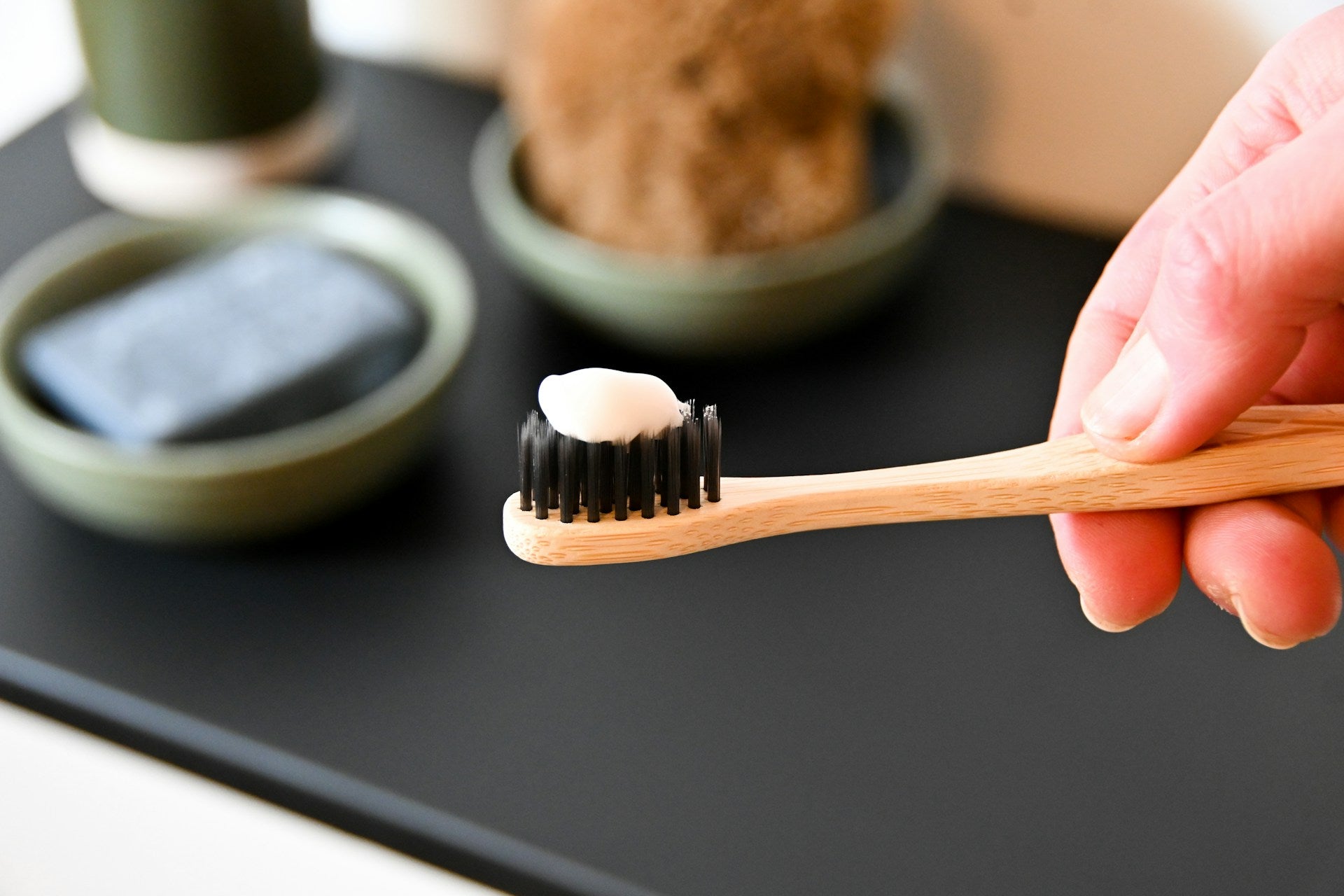Careful dental care is important for people of all ages and must not be neglected at any stage of life, because otherwise caries and periodontitis have an easy game. Both must be treated by a dentist. In addition, poor oral hygiene can have an impact on the entire body. Scientific studies show that poor oral and dental hygiene can promote or trigger secondary diseases. These include diabetes, strokes, Alzheimer's disease, heart attacks and lung diseases.
At the onset of dementia, many patients can still take care of their teeth themselves. Caregivers or supportive relatives simply remind them to take care of their teeth regularly and check that they are doing so correctly.
Oral care for dementia patients: Why an electric toothbrush makes sense
Switching to an electric toothbrush could be helpful, because the brushing movements are then largely relieved of the patient. Relatives then only have to ensure that the brush is moved slowly and systematically over the teeth. However, if a manual toothbrush was used exclusively before the disease, the changeover is often difficult. Dementia patients who are not yet familiar with brushing with an electric toothbrush often react skeptically to the volume and the feeling in the mouth.
At a certain stage of the disease, patients are no longer able to take care of their mouths themselves. It is then important that caring relatives proceed empathetically and sensitively. On bad days, patients may not open their mouths at all to have their teeth brushed. Good persuasion is needed here, because mouth supports should only be used in extreme emergencies. It can also happen that patients do not want to have their mouths grasped in order to be able to remove a denture. Depending on the situation, a lot of patience is required to avoid stress. This also applies to cleaning the interdental spaces with an interdental brush, dental floss or oral irrigator. Here, it is best to try out which variant is most comfortable for the patient.
Oral care for dementia patients: Alarm signs of pain
Removable dentures should at best be rinsed under running water after every meal and cleaned in the evening with liquid soap and a denture brush. It is also important that the denture fits well, because pressure points can lead to inflammation. People with advanced dementia can no longer speak properly and therefore cannot communicate that they are in pain due to pressure points. Therefore, it is important to have the mouth checked regularly by a dentist.
In addition, caregivers can watch for these signs of a relieving posture that indicate pain in the mouth:
Food intake is refused, even favorite dishes are no longer eaten. Instead, sip food is preferred.
Strong bad breath may mean that there is a painful inflammation in the mouth.
Slow eating and chewing
Visible bleeding gums
Uncharacteristic restlessness
Also, be sure to change your manual toothbrush or electric toothbrush brush heads at least every eight weeks. Also try out which bristle thickness (hard, medium, soft) is most comfortable for the patient. In addition to the usual degrees of hardness, demirdental also offers particularly hard and particularly soft bristles.
Oral care for dementia patients can be a challenge for family caregivers. If there is any uncertainty, you should definitely contact a dentist. He or she can usually also give tips on further care and on dealing with difficult patients.




Leave a comment
All comments are moderated before being published.
This site is protected by hCaptcha and the hCaptcha Privacy Policy and Terms of Service apply.